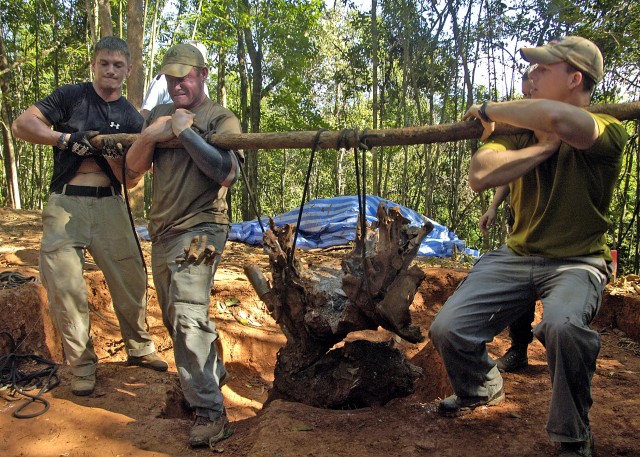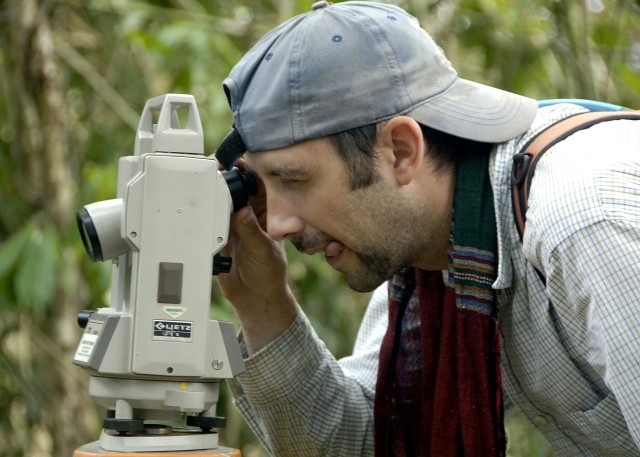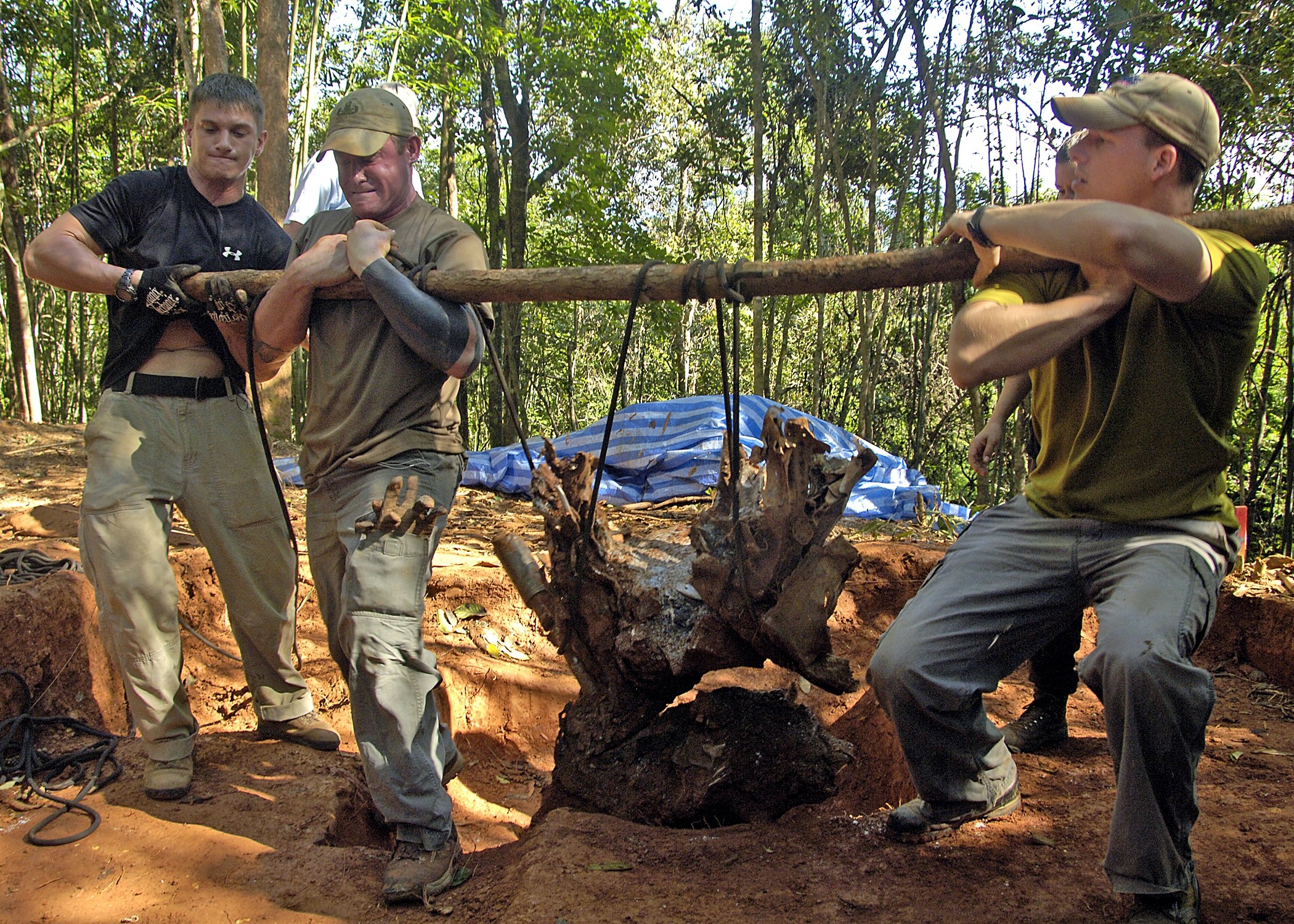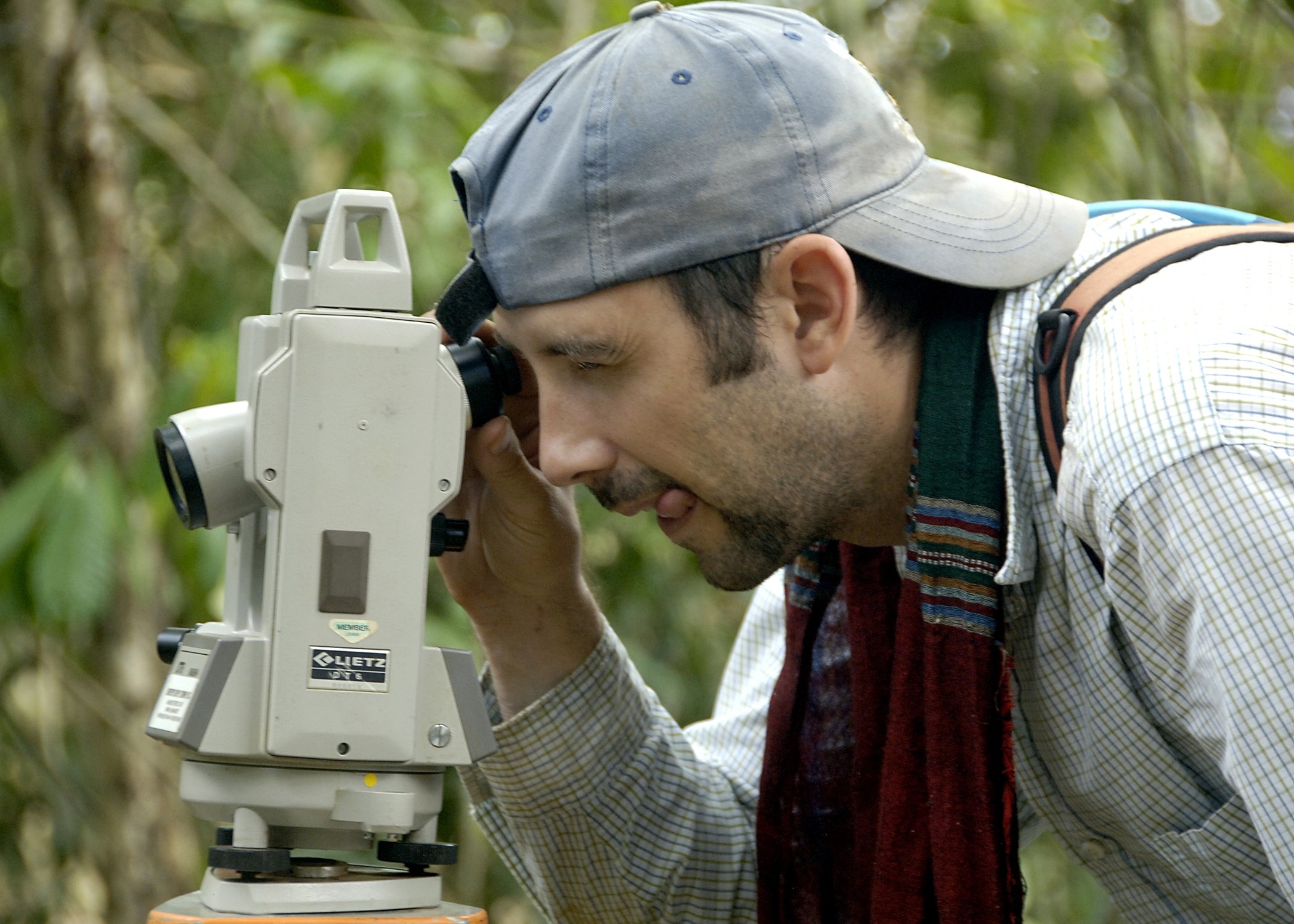HICKAM AIR FORCE BASE, Hawaii (Army News Service, Aug. 15, 2007) - Four recovery teams from the Joint POW/MIA Accounting Command recently completed JPAC's 100th recovery mission in the Lao People's Democratic Republic, recovering possible human remains and personal effects.
"The JPAC mission is as important in our effort to account for each missing American here as it is in Vietnam, Cambodia, China, Korea and everywhere else where we have unresolved cases of Americans who did not return from previous conflicts," said William Gadoury, planner, JPAC Detachment 3.
Since 1985, JPAC has been conducting search and recovery missions for unaccounted-for servicemembers from the Vietnam War who were lost in Laos.
While the air war over northern Laos began in 1965, the first American losses in the country date back to the early 1960s. One of the major campaigns during the war was waged in southern Laos along the part of the Ho Chi Minh trail that passed through Laos and back into southern Vietnam. Today, there are 357 Americans missing in Laos as a result of these past U.S. military operations.
During the 100th Joint Field Activity in Laos, recovery teams conducted operations in the Xekong Province, Kalum District, in southern Laos. Their efforts to reach recovery sites by helicopter were hampered by low clouds, storms and constant rain during the first week of the monthlong mission.
"The weather forced us to abandon our first site on a mountain ridge and conduct operations at an alternate site at a lower elevation," said Staff Sergeant Luke Fortin, team leader, JPAC Recovery Team 3. "Fortunately we were prepared for this contingency, and my team was able to collect over seven hundred pounds of equipment from the staging area on the mountain and transport it to the alternate site in less than 24 hours."
JPAC Forensic Anthropologist Paul Emanovsky was then able to brief the team about the new case and the new site location.
"Changing cases wasn't difficult because I have several case histories with me when I travel," said Mr. Emanovsky. "The main challenge is that the sites are completely different and I had to alter my team's operational plans from recovering a servicemember lost during ground fighting, to recovering servicemembers lost in an aircraft crash."
Success of such missions depends on the cooperation from local residents.
"Most of the (Lao) people I've met and talked with have enormous respect for the work we do, and are amazed that our government goes to the lengths we do to account for our missing," said Mr. Gadoury.
Besides searching for clues to the past, JPAC teams also participate in humanitarian relief unrelated to the recovery missions.
"For the Lao, they facilitate and allow our teams access to search for our unaccounted-for Americans. For the U.S., for the past 20 years, PACOM (U.S. Pacific Command) has provided funds to support the construction of clinics, schools and other assistance projects, many in economically challenged rural areas where our teams conduct their search and recovery efforts," Mr. Gadoury said.
Recovery team members take their missions to heart, he added.
"One important aspect of our mission has been the hard work and dedication of so many American team members during these past 100 JFAs," said Mr. Gadoury. "Their dedication over the years has been infectious and even our Lao counterparts have been motivated by the humanitarian spirit and dedication shown by our teams. When it comes down to the human element, no matter which side of the joint team base camp your tent is located on, everyone understands why it's important to recover our countrymen and send them home to families with appropriate final honors."
<i>Editor's Note: JPAC is a jointly manned unit with Airmen, Soldiers, Sailors, and Marines, whose mission is to achieve the fullest possible accounting of all Americans missing as a result of our nation's previous conflicts. JPAC recovery teams include a forensic anthropologist, field medic, explosive ordnance disposal technician, life support investigator and forensic photographer.</i>




Social Sharing